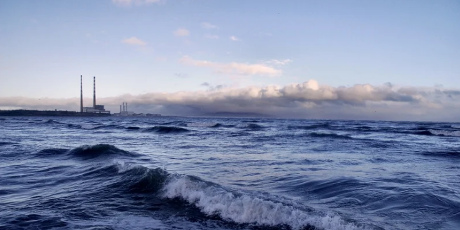Why 2021 will be a pivotal year for climate action in Ireland 11 Jan 2021

Opinion: we must think and act very differently around transport, home heating and farming to reduce emissions - Dr. Paul Deane, Senior Research Fellow, Energy Policy and Modelling Group - MaREI Centre/ERI
The government has pledged to cut greenhouse gas emissions in half by 2030, a feat that no modern economy has deliberately achieved in a peacetime period. It will be remarkably challenging, but the consequences of failure go beyond emissions and will resonate within the economy in Ireland
International climate action is becoming less about avoiding calamity and more about seizing economic opportunities to reinvent, create jobs and launch new industries. The Environmental Protection Agency's State of the Environment Report showed that Ireland's green image is largely an imagined fiction with the reality more closely reflecting biodiversity loss, air pollution and deteriorating water quality
Failure to act is not just about environmental consequences as reputational impacts matter now. The world of climate action is moving fast and Ireland risks being side-lined in a global race for sustainability.
At an international level, US president-elect Joe Biden has made clear that he will move to restore the country's leadership in that regard, including by re-joining the Paris agreement to reduce emissions. A key moment in 2021 for climate action will come at the United Nations' climate change conference in Glasgow in November. Countries will make new pledges on cuts to greenhouse-gas emissions, the first since the Paris agreement in 2015.
Key to success for Ireland is the need to focus on three specific areas: (i) how we move about; (ii) how we heat our homes and (iii) how we farm and use our land. These three areas account for 80% of greenhouse gas emissions but, more importantly, action in these areas can deliver overlapping benefits such as jobs, wellbeing benefits and new industries.
It won’t be plain sailing or easy.
Ireland is having success in clean electricity generation with a significant increase in wind electricity. This success is hard to replicate across the full economy, however, because the costs are higher and the number of decision makers is much greater. To reduce emissions in cars and homes, we need over one million families to make decisions and investments and this takes time. Compare this to electricity supply where no more than100 firms need to make decisions.
Equally, reducing emissions in our homes typically requires a large upfront investment and we tend to discount the future in favour of the present. This means that investments that will save us money in the long run such as buying an electric car or an improved home heating system are less attractive.
A long term rather than a short term perspective to how we spend and consume is required. The Government can help families by providing strong and sustained financial support such as 100% grant funding for home upgrades. A key challenge is to understand how to finance such an investment, with over €15 billion required in a 10-year period. Part of the investment will be offset by employment with SEAI estimating that between 30,000 and 40,000 jobs could be supported by a full-scale programme nationally.
For transport, Ireland has some of the most generous supports in the world for electric vehicle purchase. These include a purchase grant, vehicle registration tax relief, a toll incentive, a home charger installation grants and reduced motor tax rates. In total, the average electric vehicle purchaser receives a direct subsidy from the state of over €10,000.
What is also required is strong disincentives to buy inefficient vehicles such as SUVs by massively increasing the tax on these vehicles. This will be politically unpopular, but our current purchasing trends are not compatible with emissions reduction or clean air ambitions
For farming, our cultural and emotional attachment to land has been shown to be stronger than the economic ties that could break it. Damage to the environment from agriculture undermines the credibility of Ireland’s clean, green image which we use as a promotional tool to attract tourists and sell goods.
The farming sector is facing multiple challenges in terms of profitability as it comes under pressure over wider environmental sustainability issues from water to air pollution. It needs to adapt to remain relevant in a food industry than is demanding higher environmental standards.
Farmers, particularly smaller farmers, need options to diversify and to use their land in different ways, whether to produce different foods, manage their land in a way that absorbs carbon from the atmosphere or using their land to produce energy and remove emissions using negative emissions technologies. Many of these options will have to come from the farming community themselves. As with changes in our approach to transport and heating, a large number of over 130,000 families will have to make the decisions here.
Above all, key to success in 2021 will be political unity and bravery. Achieving something that no country has done before requires us to think and act very differently into the future.